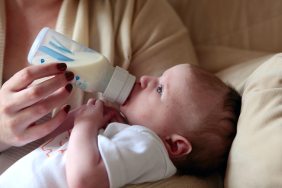
Researchers in the United Kingdom have discovered a new way to potentially identify premature babies who are at high risk for delays in the development of their motor skills — and the answer lies in chemicals in the babies' brains.
To conduct their study, researchers in London ran brain scans on 43 infants who were born at less than 32 weeks gestation and admitted to a neonatal intensive care unit. Their focus was on the brain's white matter, which is especially fragile in newborns and at risk for injury. They also measured certain levels of specific-brain chemicals. When 40 of these infants were evaluated a year later, 15 of them had signs of motor skill problems.
Study author Giles Kendall of University College London says that being able to predict the risk of neurodevelopmental problems in premature babies will help to identify those who should receive intensive treatments. His team's research has determined that ratios of particular brain chemicals at birth predict these motor skill problems. Increased choline/creatine and decreased N-acetylaspartate/choline were 70 percent accurate in predicting which babies would have motor development delays at one year after birth.
"Our hope is to find a robust biomarker that we can use as an outcome measure, so that we don't have to wait five or six years to see if an intervention has worked," says Kendall.
He noted that physical therapy is available, but very expensive, and the majority of preemies don't need it. "Our goal is a shift away from simply assuring the survival of these infants to giving them the best possible quality of life."
Photo: Getty








